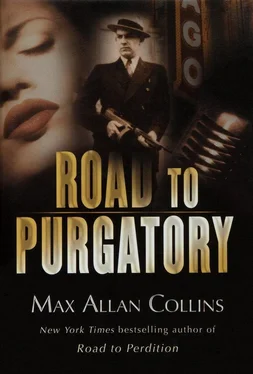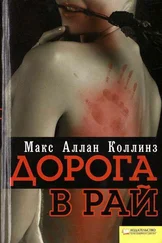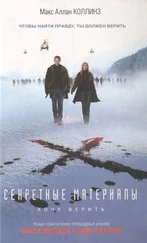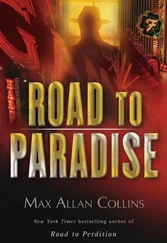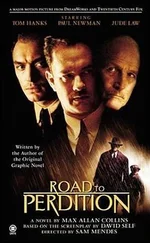For the John Looney section, I turned to Rock Island historian, BJ Elsner. BJ’s book Rock Island: Yesterday, Today & Tomorrow (1988) was indispensable; also, this fine writer (and Rock Island native) provided many pages of background material, a welcome combination of history, ideas, and insights, making a major contribution to this work.
Other Looney references include the late Jim Arpy’s lively six-part article, “The Lawless Looney Years,” which ran in the Quad-City Times in 1979; and “Smashing Rock Island’s Reign of Terror” by O. F. Claybaugh in Master Detective (December 1930).
Thanks to my cousin, Kris Povlsen, for hooking me up with Stephen J. Bigolin, who generously shared his encyclopedic knowledge about DeKalb, Illinois. Thanks also to my old rock-bandmate, Rob Gal, for a reason he’ll understand, should he ever read this book.
I have already mentioned in passing the graphic novel, Road to Perdition (1998). I am not sure if a prose sequel has ever before been written to a graphic novel (i.e., a long narrative told in comics form). Since Road to Perdition was essentially a comic-book spin-off of my historical approach (and of the Chicago Outfit material explored) in the Nathan Heller novels, returning to prose form for this sequel seemed natural and even necessary to me.
Obviously, Road to Purgatory came about because of interest in the film adaptation of Road to Perdition and, to some degree, might be considered a sequel to my novelization of David Self’s fine screenplay, which was based in turn on my work. Unfortunately, my movie tie-in novel — of a length similar to this one, and filled with backstory, history, and additional scenes — was published in a severely truncated manner, leaving only material directly paralleling the film. It had long been my hope that someday the original version of my movie novelization would join this book (and its sequel, Road to Paradise ) to complete the trilogy properly. At long last, Brash Books has made that possible, negotiating with DreamWorks for the publication of the complete, expanded Road to Perdition prose novel, which is available now. I also hope readers of the trilogy who haven’t read the original graphic novel version will visit it as well.
Which leads me to Richard Piers Rayner, my Brit “brother,” the graphic novel’s gifted illustrator. I wish to acknowledge and thank Richard for his wonderful work on Road to Perdition ; his stunning art had much to do with the warm reception our graphic novel received, both in Hollywood and among readers worldwide.
And I would like to thank several others who made the original graphic novel (and the DreamWorks film based upon it) possible: Andy Helfer, the editor at DC who provided both the opportunity and shrewd counsel along the way; Daniel Ostroff, the Hollywood agent (now successful producer) who saw potential in the graphic novel; Dean and Richard Zanuck, the father-and-son producing team who made the film version happen; Steven Spielberg, who gave the project its green light (and liked my ending better); Sam Mendes, the director who — with writer David Self, cinematographer Conrad L. Hall, and composer Thomas Newman — captured on film the spirit of Road to Perdition ; and the amazing cast of actors, including Tom Hanks, Paul Newman, Jude Law, Jennifer Jason Leigh, Stanley Tucci, Daniel Craig, and Tyler Hoechlin, who made my characters live and breathe (and, often, die).
In addition, I would like to acknowledge a number of books and their authors from whose work I drew information and inspiration in writing Road to Purgatory .
A particularly helpful reference, which was key in the early Heller novels, was The Legacy of Al Capone (1975) by George Murray; also the following excellent biographies of Al Capone: Capone: The Life and World of Al Capone (1971), John Kobler; Capone: The Man and His Era (1994), Laurence Bergreen; and Mr. Capone (1992), Robert J. A. Schoenberg. Also consulted was the full testimony of Paul Ricca and Louis Campagna from the 195 °Congressional Investigation of Organized Crime in Interstate Commerce.
Other helpful books on the Chicago mob include: Accardo: the Genuine Godfather (1995), William F. Roemer, Jr.; Captive City (1969), Ovid Demaris; Crime in America (1951), Estes Kefauver; The Don: The Life and Death of Sam Giancana (1977), William Brashler; Double Cross (1992), Sam and Chuck Giancana; The Mafia Encyclopedia (1987), Carl Sifakis; and Syndicate City (1954), Alson J. Smith. The latter book and The Valachi Papers (1968), Peter Maas, were the chief sources for the Mafia initiation ritual in this novel.
Several sources above include material on the Estelle Carey murder. Readers of the Nathan Heller novel The Million-Dollar Wound will recognize the Carey case — and the downfall of Frank Nitti — as major elements of that book. I have attempted here to look at the tragic “26” girl’s death (and Nitti’s suicide) from a different vantage point without contradicting that earlier narrative. While each book obviously stands on its own, my intention is that these stories take place in the same world.
I have written much about Eliot Ness in the Heller novels, but even more in four novels about Ness’s Cleveland years — The Dark City (1987), Butcher’s Dozen (1988), Bullet Proof (1989), and Murder by the Numbers (1993); considerable research went into that quartet, and many sources that helped form my take on the famous Untouchable can be found in bibliographic essays at the conclusion of those novels. Two nonfiction accounts of the life of Eliot Ness have subsequently appeared, which I’d like to credit: Eliot Ness: The Real Story (1997), Paul W. Heimel; and Torso (1989), Steven Nickel.
Chicago references included Chicago Confidential (1950), Jack Lait and Lee Mortimer; Dining in Chicago (1931), John Drury; and Vittles and Vice (1952), Patricia Bronté. The WPA guides for both Illinois and Florida were also helpful.
The Bataan section of this novel drew upon numerous books, including: Bataan: Our Last Ditch (1990), John W. Whitman; The Battle of Bataan (1992), Donald J. Young; But Not in Shame (1961), John Toland; Crisis in the Pacific (1996), Gerald Astor; Eagle Against the Sun (1985), Ronald H. Spector; The Great Battles of World War II, Volume 1: The Pacific Island Battles (1985), Charles E. Pfannes and Victor A. Salamone; The Greatest War (1999), Gerald Astor; Hero of Bataan: The Story of General Jonathan M. Wainwright (1981), Duane Schultz; I Saw the Fall of the Philippines (1942), Colonel Carlos P. Romulo; I Served on Bataan (1943), Juanita Redmond; Bataan: Our Last Ditch (1990), John W. Whitman; MacArthur and Defeat in the Philippines (2001), Richard Connaughton; MacArthur and Wainwright (1974), John Jacob Beck; and the particularly helpful They Call It Pacific (1943), Clark Lee.
Other World War II references were: Baa Baa Black Sheep (1958), Gregory “Pappy” Boyington; No Name on the Bullet: A Biography of Audie Murphy (1989), Don Graham; and Since You Went Away (1973), Donald I. Rogers.
Perhaps the biggest thanks must be reserved for two editors: Trish Lande Grader, who saw the potential in my proposal for prose sequels to Road to Perdition ; and Sarah Durand, whose insightful input guided me to a stronger book. I must also acknowledge my friend and agent, Dominick Abel, who recognized movie potential in Road to Perdition . My entertainment lawyer, Ken Levin, has similarly been my champion on this journey.
Читать дальше
